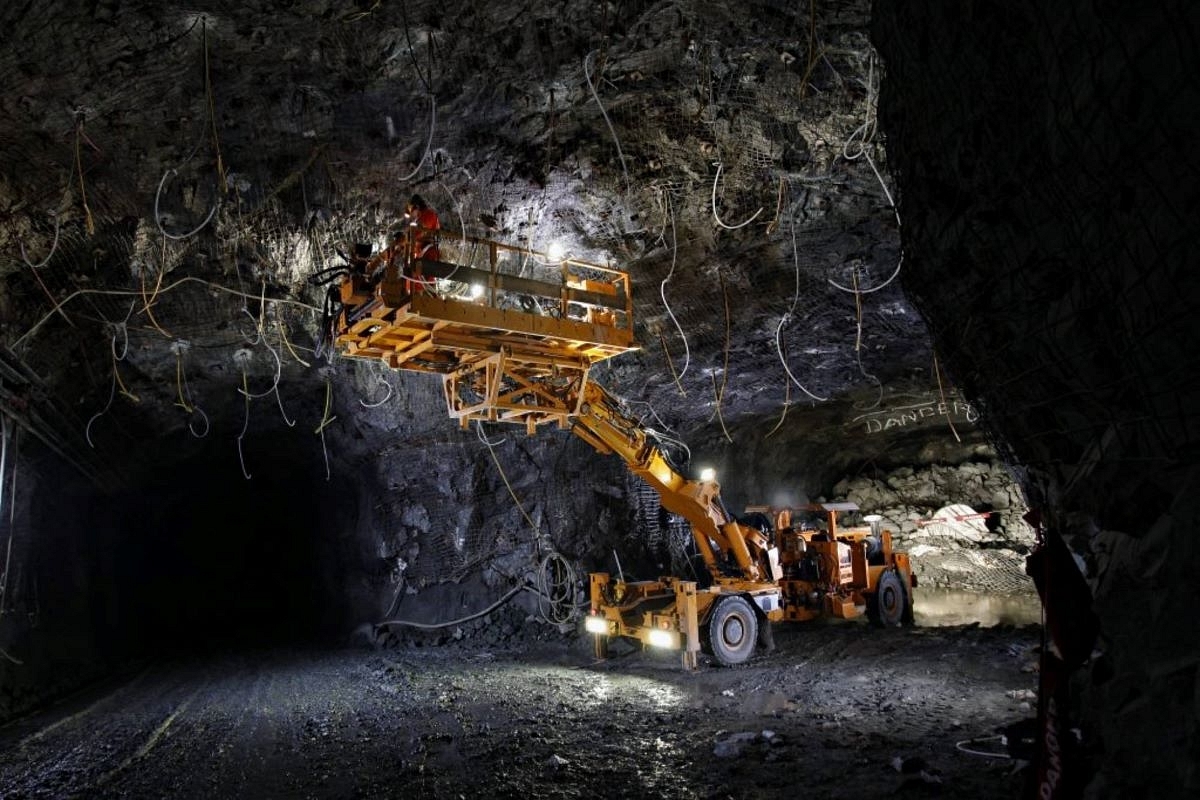Infrastructure
Quest For Lithium, Cobalt And Nickel: Should Indian Automakers Start Buying Mining Companies?
- Low investments into the battery supply chain could spell trouble for Indian automakers as mass market EVs as demand continues rising. India has already seen EVs grow rapidly in the two and three-wheeler segments and is likely to grow further as multiple four-wheeler manufacturers work on bringing in low-cost EVs into the market.

Battery metals mining
A few days back, US-based General Motors announced its plans to enter the mining space by acquiring a $69 million stake in nickel and cobalt miner Queensland Pacific Metals. With this move, the automaker wishes to secure a source of raw materials for its automobile-battery business.
The shortage of critical minerals and sky-high commodity prices has prompted automakers to take another look at their supply chain. General Motors is one of several automakers that have ventured directly into battery technology and hence seeks better supply chain control.
Apart from GM, Tesla has indicated its interest in buying mines to fulfil its lithium supply for its battery-manufacturing plants. It even tried to buy a lithium-mining start-up named Simbol Materials in 2014. Simbol reportedly developed a technology to extract lithium from the Salton Sea, a saline water body in California. In fact, Tesla appeared to have been quite gung-ho about the technology and its prospect and was ready to pay up $325 million for the company in part cash and Tesla stock. Simbol had set up a demonstration plant to showcase the authenticity of its process to potential customers and investors. However, the deal did not go through, and Simbol floundered and went bankrupt.
Despite being an automaker, Tesla has continued working on efficient lithium extraction technologies and partnered with mining companies to implement the process. Tesla has also invested in a nickel mine in New Caledonia.
Surprisingly, before 2021, there were only two such deals, indicating that automakers expect a quick ramp-up in electric vehicles.
The first deal was concluded in 2017 with Great Wall Motors buying into the Pilbara Minerals Lithium project in Australia. And the second deal involved Toyota buying a 15 per cent stake in Orocobre, which was developing the Olaroz lithium mine in South America.
BMW too has been developing lithium extraction technologies to be implemented by its mining partners. The luxury carmaker has already invested in Lilac Volkswagen has been working on developing battery systems for its cars and has even announced IPO plans for its battery unit.
In April, Volkswagen announced its plans to buy stakes in existing Canadian mines and mine operators to secure its raw material supplies. The German carmaker has already formed a joint venture with Huayou Cobalt and Tsingshan, a steel manufacturer, to mine nickel in Indonesia.
BYD has bought a stake in Chengxin Lithium, a lithium mining company, to secure supplies at preferential rates. Each automaker is working on various types of battery technologies focusing on long ranges, power and cost reduction.
Since defects in the products can be quite costly due to recalls and lawsuits, automakers prefer having a degree of control over the entire auto-parts manufacturing system. Acquiring significant stakes in stakes in vendor companies has been one of the strategies followed by some American and Japanese players to ensure that a complete check on cost and quality is constantly ensured.
Indian auto manufacturers have stayed away from owning stakes in vendors and are far from working on battery manufacturing technologies so far.
Apart from some pure electric vehicle players, Ather Energy and Ola Electric, almost no incumbent automaker has announced any plans to enter battery manufacturing.
On the battery side, India remains heavily dependent on China and Hong Kong for EV batteries due to the low availability of lithium, nickel and cobalt. While the government has created a Production Linked Incentive (PLI) scheme with investments of Rs 18,100 crores, Ola Electric is the only approved automaker under the scheme.
Low investments into the battery supply chain could spell trouble for Indian automakers as mass market EVs as demand continues rising. India has already seen EVs grow rapidly in the two and three-wheeler segments and is likely to grow further as multiple four-wheeler manufacturers work on bringing in low-cost EVs into the market.
The lack of customised battery technology and battery management systems has been cited as one of the reasons for the spate of EV fires a few months back, making it necessary for EV manufacturers to have greater control over the battery supply chain. However, Indian incumbents have been slower than their global counterparts in setting up their EV divisions, possibly to avoid cannibalising their own sales. The government has been pushing manufacturers to produce a higher percentage of EV parts in India.
Support Swarajya's 50 Ground Reports Project & Sponsor A Story
Every general election Swarajya does a 50 ground reports project.
Aimed only at serious readers and those who appreciate the nuances of political undercurrents, the project provides a sense of India's electoral landscape. As you know, these reports are produced after considerable investment of travel, time and effort on the ground.
This time too we've kicked off the project in style and have covered over 30 constituencies already. If you're someone who appreciates such work and have enjoyed our coverage please consider sponsoring a ground report for just Rs 2999 to Rs 19,999 - it goes a long way in helping us produce more quality reportage.
You can also back this project by becoming a subscriber for as little as Rs 999 - so do click on this links and choose a plan that suits you and back us.
Click below to contribute.
Latest